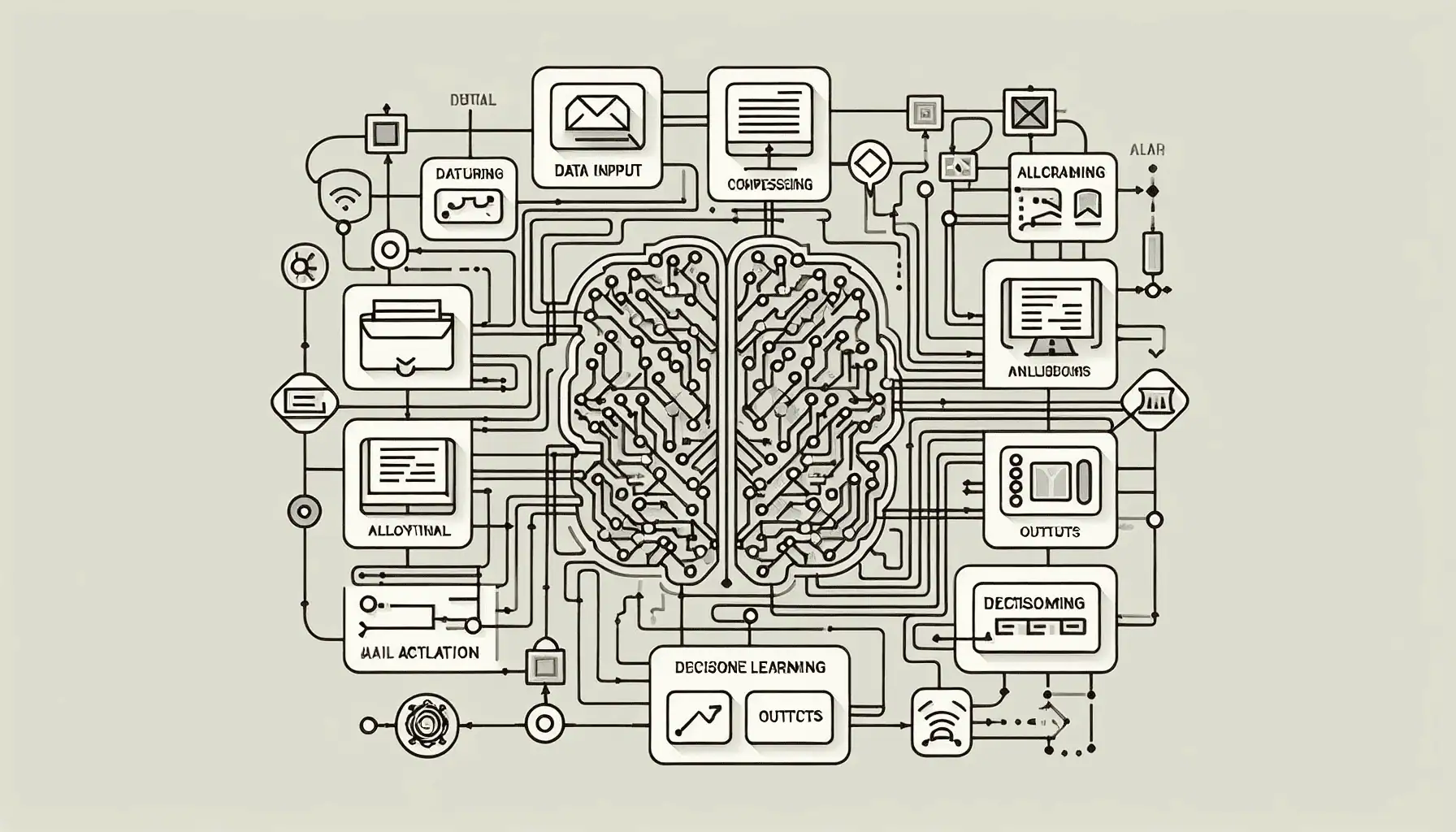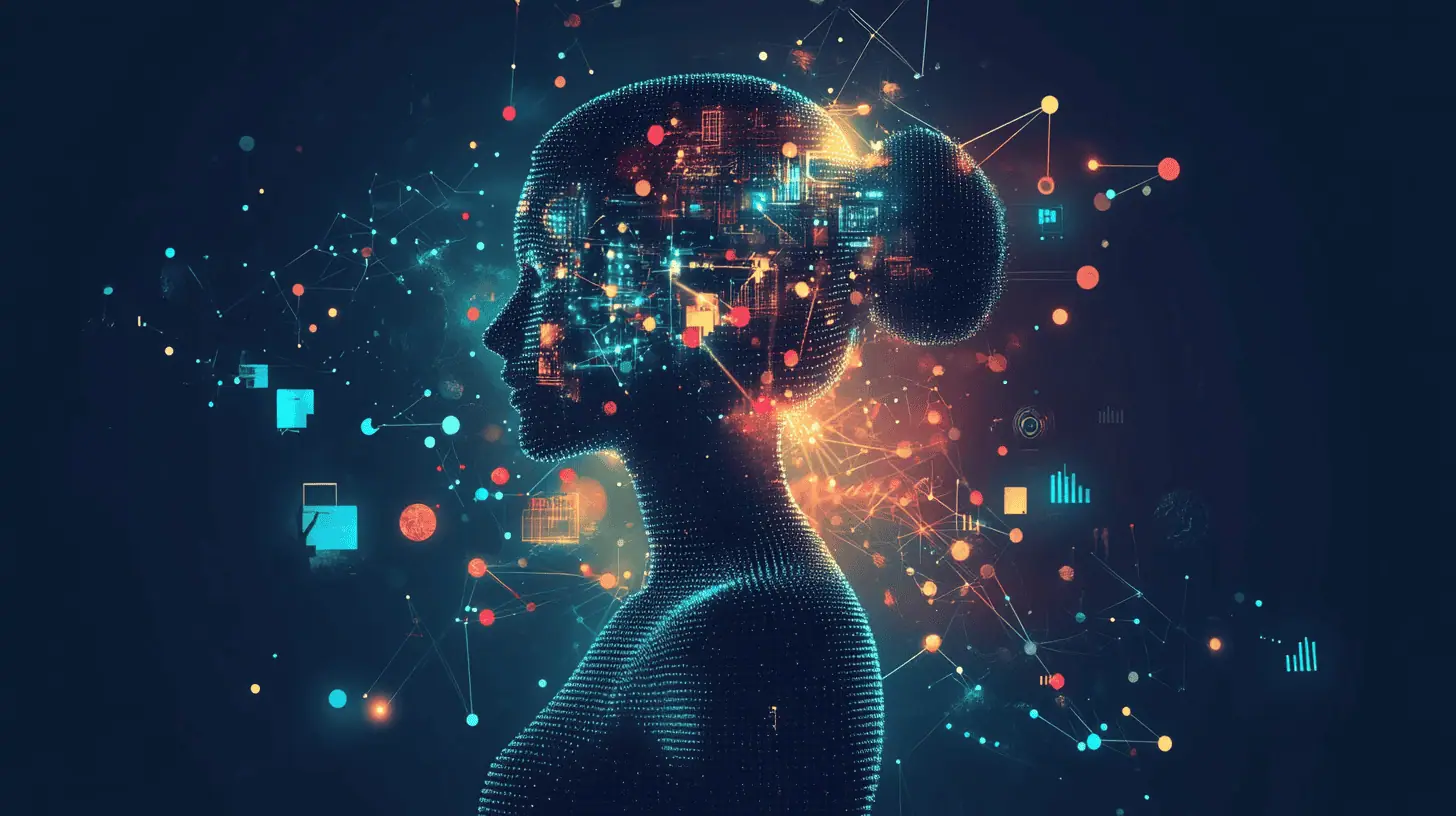
Understanding AI Agents: An In-Depth Look
Key Takeaways
- AI Agents Defined: AI agents are sophisticated software systems designed to interact with dynamic environments autonomously, performing tasks to achieve specified objectives efficiently and intelligently.
- Core Characteristics: Autonomy, rationality, adaptability, and interactivity set AI agents apart from traditional software, presenting them as more autonomous, intelligent operators in varied settings.
- Industry Applications: AI agents are revolutionizing sectors such as healthcare, finance, and customer service by not only automating processes but also enhancing decision-making capabilities. This leads to more informed, agile responses in rapidly changing environments.
- Components and Types: AI agents are composed of architecture, including sensors and actuators, an agent function, and a program. They vary from rational agents to learning agents, each with unique capacities for processing data and interacting with environments.
- Benefits and Challenges: The deployment of AI agents results in improved operational efficiency and customer experiences. However, challenges include ethical concerns, data privacy issues, and the need for sophisticated technological and managerial expertise.
Introduction
In a world increasingly shaped by technology, Artificial Intelligence (AI) agents are transforming both industry and everyday life. From streamlining business operations to enhancing personal user experiences, AI agents serve as key players in driving efficiency and innovation. Understanding how these agents work and their potential applications opens doors to advancing technologies that redefine what is possible across multiple platforms.
Main Content
What Are AI Agents?
AI agents are specialized software systems capable of interacting autonomously with their environments. They gather data, process information, and perform tasks independently, ensuring they meet predefined objectives without constant human guidance. Like a self-directing drone navigating a complex terrain, AI agents make decisions and adapt based on real-time feedback, simulating an intelligent entity engaged in purposeful action.
Key Characteristics:
- Autonomy: AI agents operate independently, analyzing their environment to make decisions without needing constant human intervention.
- Rationality: They make logical, informed decisions based on the data available, ensuring optimal outcomes are pursued.
- Adaptability: These agents learn from data and experiences, adapting to new situations swiftly and effectively.
- Interactivity: By responding to environmental changes in real time, they maintain relevance and efficacy in dynamic settings.
- Goal-Oriented: Efficiency in achieving specific objectives is central, driving processes from start to completion seamlessly.
- Usability: Their internet accessibility ensures deployment without the need for extensive local installations.
The Role of AI Agents in Industry
AI agents hold significant promise for bringing about transformation across industries by automating routine tasks, allowing human workers to focus on more intricate, valuable contributions. They enable industries to enhance operational efficiency while also delivering superior customer experiences.
Enhancing Business Operations
AI agents streamline operation by automating repetitive and time-consuming tasks and refining organizational workflows. They facilitate a distinct competitive edge via cost reduction and ensuring scalability across various sectors.
Real-World Examples:
- Healthcare: AI agents analyze vast amounts of patient data to create personalized treatment plans, thereby improving patient outcomes and streamlining the healthcare delivery process. For instance, IBM's Watson Health employs AI to provide data-driven insights for personalized treatment strategies.
- Retail: They manage inventory by predicting restocking needs and provide personalized product suggestions based on consumer behavior. For example, Amazon's recommendation engine uses AI agents to analyze user behavior and suggest products, enhancing the shopping experience.
- Logistics: AI-driven systems optimize delivery routes and predict shipment timings, reducing excess costs and improving punctuality. Notable examples include UPS's ORION system, which optimizes routing to save miles driven and fuel usage.
Improving Customer Experience
AI agents play a crucial role in personalizing customer interactions, fostering customer loyalty and satisfaction through advanced data analytics and real-time response capabilities.
Applications:
- Personalized Recommendations: Many online platforms, like Netflix and Spotify, utilize AI to suggest content based on users’ consumption history, ensuring a more engaging and personalized user experience.
- Chatbots: Deployed by companies like Apple (Siri) and Microsoft (Cortana), chatbots provide immediate customer support and tailored responses, enhancing accessibility and providing a human-like interaction experience.
Components of AI Agents
Architecture
The architecture of an AI agent is fundamental to its capability, outlining the critical components that allow it to interact intelligently with its environment.
- Environment: The context or setting in which the agent operates. This might vary from digital ecosystems to physical worlds where environmental variables are constantly changing.
- Sensors: These tools gather data from an agent’s surroundings, forming the inputs necessary for informed decision-making. For example, self-driving cars utilize a suite of sensors like LIDAR and cameras to perceive their environment accurately.
- Decision-Making Mechanism: This processes the collected data, enabling the agent to make rational choices. By using algorithms and models, agents can weigh potential actions and select those that best achieve their goals.
- Actuators: These execute decisions, converting computed directives into real-world actions. For instance, in robotics, actuators might trigger wheels, arms, or other moving parts.
Function and Program
The functional attributes of AI agents encompass stages ranging from perceiving environments and processing data to making and learning from decisions.
Types of AI Agents
Rational and Learning Agents
- Rational Agents: Designed primarily for optimal performance, rational agents base their decision-making on available data to ensure the pursuit of the best possible outcomes.
- Learning Agents: Harness the ability to learn and adapt from experiences, making them particularly effective in complex, rapidly evolving scenarios where traditional programming might fall short.
Agentic vs. Traditional AI
Agentic AI, unlike traditional AI systems which follow strictly defined rules, can independently set goals and make decisions. In this way, they present a more dynamic and flexible approach to problem-solving and task execution, continually scanning for better strategies and solutions.
Conclusion
AI agents offer unparalleled advantages by automating complex processes, refining decision-making, and optimizing customer interactions. However, their deployment is not without challenges, including ethical perils such as data privacy concerns and technical complexities that necessitate skilled professionals for their management and operation. In the future, as AI technology continues to evolve, AI agents will likely expand their influence across an increasing number of sectors, offering innovative solutions to some of the most challenging problems humanity faces.
Actionable Insight: To leverage the benefits of AI agents, evaluate your organization’s specific needs. Consider integrating these technologies to streamline operations and enhance your decision-making processes, keeping an eye on ethical implications and skill-development needs.
Let AI Revolutionize Your Business
Ready to find out how AI agents and automation can transform your operations? Schedule a discovery call today and learn how our tailored solutions can save you time, boost efficiency, and help your business grow.

















